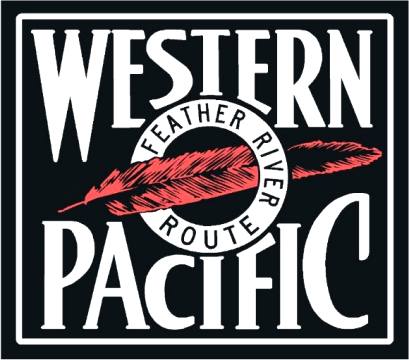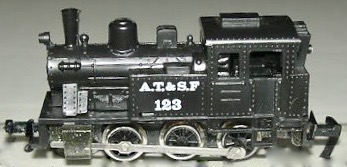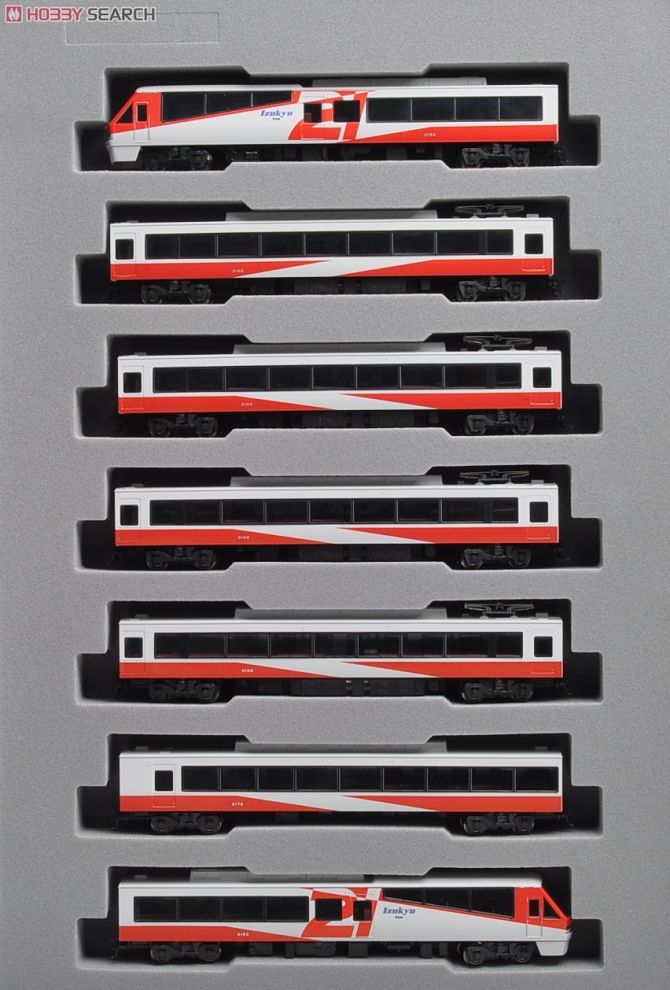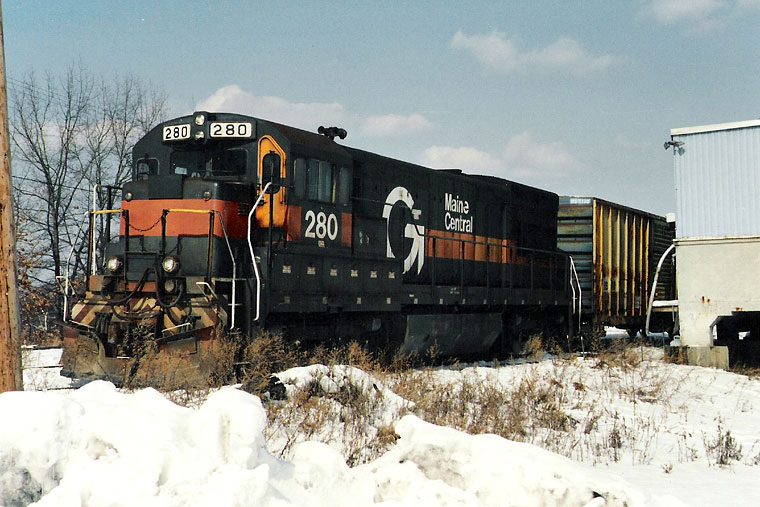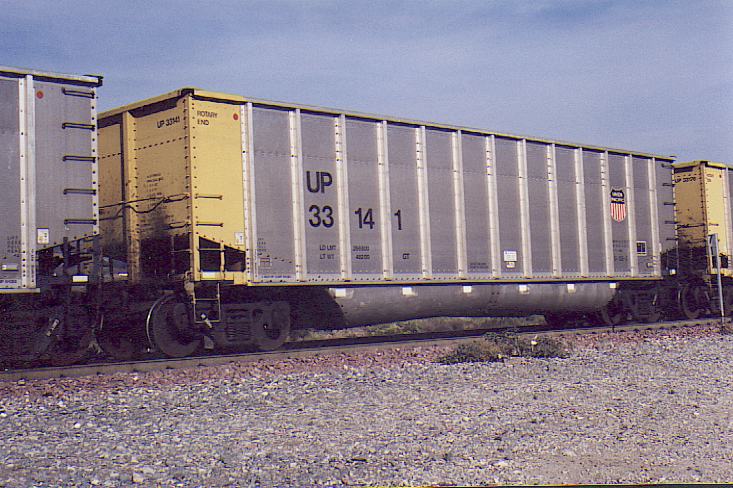Model Information: These models come with optional, user-installed weights and internal bracing.
Prototype History: There have been a number of designs of coal-hauling gondolas for todays operations. Most of the major builders have offered aluminum-bodied coal gons at one point or another. Bethlehem Steel Car made a significant introduction with its Bethgon design. This design continues with Johnstown America today. The basic design uses two longitudinal tubs between the trucks - thus adding additional cubic-foot capacity with a lower center of gravity.
In 1992, Trinity Industries introduced a similar design and called it the Aluminator. Six demonstrators were built and placed under Trinity Industries Leasing Company reporting marks (TIMX 1001-1006). This initial design was rated at a 4,400 cubic-foot capacity. Most new-built coal cars (hoppers and gondolas) are built to a standardized 53' 1" outside length. The Trinity Aluminator is no exception. The 4400 design has a 12' 7" extreme height (11' 6" inside height). What made the Aluminator unique was the way the bottom of the tubs slope down ward from the center to the ends (the Bethlehem/Johnstown design had straight bottom tubs). The body has 13 side posts each with an alternating rivet pattern. There are three internal cross braces (at the 4th, 7th and 10th side posts). Trinity's aluminum rotary dump gondola features twin longitudinal tubs located on either side of the steel center sill.
In 1992, Trinity Industries introduced a similar design and called it the Aluminator. Six demonstrators were built and placed under Trinity Industries Leasing Company reporting marks (TIMX 1001-1006). This initial design was rated at a 4,400 cubic-foot capacity. Most new-built coal cars (hoppers and gondolas) are built to a standardized 53' 1" outside length. The Trinity Aluminator is no exception. The 4400 design has a 12' 7" extreme height (11' 6" inside height). What made the Aluminator unique was the way the bottom of the tubs slope down ward from the center to the ends (the Bethlehem/Johnstown design had straight bottom tubs). The body has 13 side posts each with an alternating rivet pattern. There are three internal cross braces (at the 4th, 7th and 10th side posts). Trinity's aluminum rotary dump gondola features twin longitudinal tubs located on either side of the steel center sill.
Road Name History: The Consolidated Rail Corporation, commonly known as Conrail (reporting mark CR), was the primary Class I railroad in the Northeast U.S. between 1976 and 1999. Conrail is a portmanteau of "consolidated" and "rail" from the name of the company.
The U.S. federal government created Conrail to take over the potentially profitable lines of multiple bankrupt carriers, including the Penn Central Transportation Company and Erie Lackawanna Railway. With the benefit of industry-wide regulatory requirements being reduced (via the 4R Act and the Staggers Act), Conrail began to turn a profit in the 1980s and was turned over to private investors in 1987. The two remaining Class I railroads in the East, CSX Transportation and the Norfolk Southern Railway (NS), agreed in 1997 to split the system approximately equally, returning rail freight competition to the Northeast by essentially undoing the 1968 merger of the Pennsylvania Railroad and New York Central Railroad that created Penn Central. Following Surface Transportation Board approval, CSX and NS took control in August 1998, and on June 1, 1999, began operating their portions of Conrail.
The U.S. federal government created Conrail to take over the potentially profitable lines of multiple bankrupt carriers, including the Penn Central Transportation Company and Erie Lackawanna Railway. With the benefit of industry-wide regulatory requirements being reduced (via the 4R Act and the Staggers Act), Conrail began to turn a profit in the 1980s and was turned over to private investors in 1987. The two remaining Class I railroads in the East, CSX Transportation and the Norfolk Southern Railway (NS), agreed in 1997 to split the system approximately equally, returning rail freight competition to the Northeast by essentially undoing the 1968 merger of the Pennsylvania Railroad and New York Central Railroad that created Penn Central. Following Surface Transportation Board approval, CSX and NS took control in August 1998, and on June 1, 1999, began operating their portions of Conrail.
Brand/Importer Information: 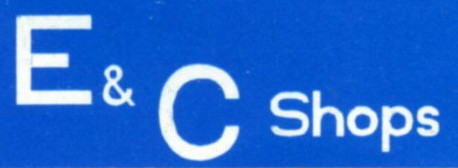 E&C Shops made decent and inexpensive Wood Chip Cars and Coalporters (their first offerings). They were genius because they made mass produced multiple road numbers available at the same time, something that the big guys are just now embracing after years of cycles of watching for announcements and checking the ones you already have. At the time and at least 10 years beyond it was nice to grab a dozen BN coalporters with different numbers in a box and go. Kudos to Fred Becker and Hubert for trying something different and cutting edge. Their Bethgons were less expensive and more detailed than later big-name productions.
E&C Shops made decent and inexpensive Wood Chip Cars and Coalporters (their first offerings). They were genius because they made mass produced multiple road numbers available at the same time, something that the big guys are just now embracing after years of cycles of watching for announcements and checking the ones you already have. At the time and at least 10 years beyond it was nice to grab a dozen BN coalporters with different numbers in a box and go. Kudos to Fred Becker and Hubert for trying something different and cutting edge. Their Bethgons were less expensive and more detailed than later big-name productions.

Item created by: gdm on 2017-09-24 08:49:22. Last edited by CNW400 on 2020-06-11 10:53:22
If you see errors or missing data in this entry, please feel free to log in and edit it. Anyone with a Gmail account can log in instantly.
If you see errors or missing data in this entry, please feel free to log in and edit it. Anyone with a Gmail account can log in instantly.





